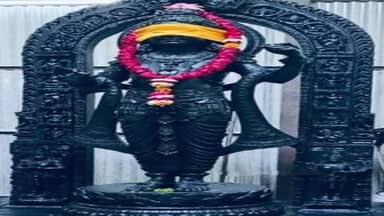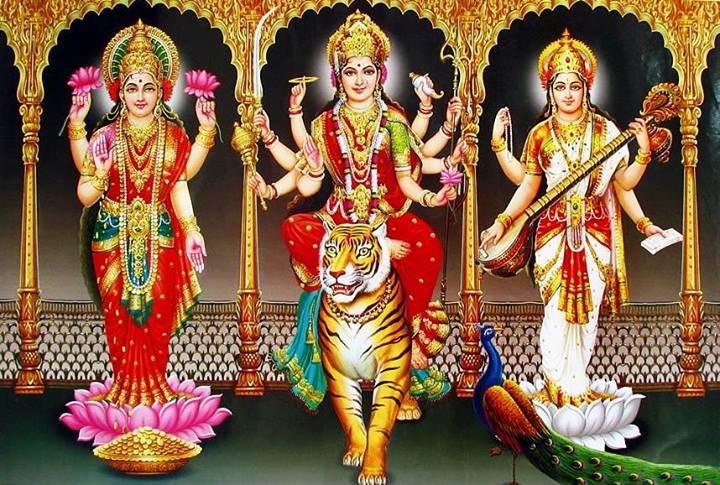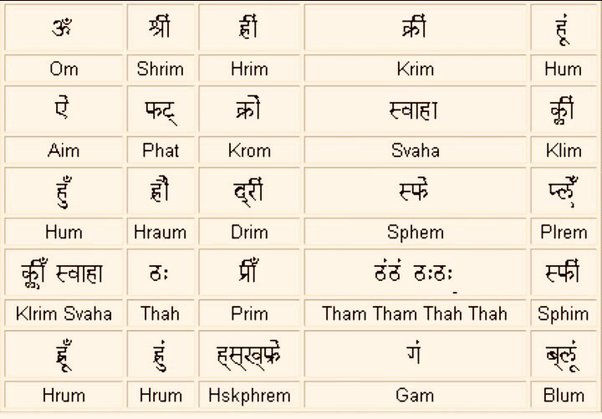From the history Tet Books taught in India,it is generally excepted that Akbar (14 October 1542 – 27 October 1605) , the Mughal Emperor who ruled India was a benevolent,Tolerant,a man with out a blemish.
Is it so?
After reading some of my posts , one of the readers from the Facebook community asked me this question and wanted to know the facts.
Here they are.

Akbar, The fanatic.
In 1567, Akbar moved to reduce the Chittorgarh Fort in Mewar. The fortress-capital of Mewar was of great strategic importance as it lay on the shortest route from Agra to Gujarat and was also considered a key to holding the interior parts of Rajputana. Udai Singh retired to the hills of Mewar, leaving two Rajput warriors, Jaimal and Patta, in charge of the defense of his capital.[34] Chittorgarh fell on February 1568 after a siege of four months. Akbar had the surviving defenders massacred and their heads displayed upon towers erected throughout the region, in order to demonstrate his authority.[35][36] The total loot that fell into the hands of the Mughals was distributed throughout the empire.[37] He remained in Chittorgarh for three days, then returned to Agra, where to commemorate the victory, he set up, at the gates of his fort, statues of Jaimal and Patta mounted on elephants.”
”
Xavier, a Jesuit in Akbar’s court, gives a typical instance of Akbar’s perfidy in making people drink water in which his feet had been washed. Xavier writes, says Smith (p.189), Akbar posed ” as a Prophet, wishing it to be understood that he works miracles through healing the sick by means of the water in which he washed the feet.” Badauni says that this [the above] special type of humiliation was reserved by Akbar only for Hindus. Says Badayuni, “… if other than Hindus came, and wished to become disciples at any sacrifice, His Majesty reproved them.” Where was his broadminded and tolerant nature then?
Yet another Xavier’s letter (MacLagan, p.57 and Du Jarric, p.90) states, “The Christian fathers got little opportunity of holding religious discussions with Akbar or influencing him in favour of Christianity …Akbar silenced Xavier by telling him that the freedom accorded to him in preaching his religion was itself a great service.” Akbar was not at all a tolerant of other religious faiths.
Akbar had filled both his hands with 50 gold coins when Badayuni expressed his strong desire to take part in a “holy war” (massacring Hindus) and “dye these black moustachois and beard in (hindu) blood through loyalty to Your Majesty’s person” (sic). Akbar far from dispproving of Badayuni’s despicable desire, gladly presented him with a decent premium.”
”
According to chronicles in Akbar’s time[11], there was just one attack on Chittor by Mughal forces. But in his Annals and Antiquities of Rajasthan[12], James Tod mentions two, the first in which the Imperial army was driven back, and a second in which it was successful and Chittor fell.
Udai Singh’s wife led infiltrations into the Mughal camp during the first attack, and in one such foray the Rajputs reached the heart of the camp and forced the Mughal Imperial army to retreat.
The second siege of Chittor by Akbar was successful. When the northern walls were breached and it became inevitable that Chittor would fall, jouhar was prepared and 13,000 kshatriya women leapt into the raging flames. Jouhar was committed by the women when it was certain that they would be dishonored by Akbar’s army after the fall of Chittor. The Rajputs of Chittor committed saka, in which they rode out in saffron robes to meet Akbar in a final battle. In the end, 32,000 Rajputs were killed. In the sacking of Chittor, the Mughal army had incurred large losses and Akbar was furious that the siege had taken so long (October 20, 1567-Februrary 23, 1568). Upon victory, Akbar issued Fathnama-i-Chitor[13]. He began this letter with praise for Allah, and quoted several verses of the Quran leaving no doubt that he derived his inspiration from the Quran and that he viewed himself as a jihadi annihilating the infidel Rajputs. He declared that
in conformity with the happy injunction of the Quran (27:40)…[he was busy] in subjugating the localities, habitations, forts and towns which are under the possession of the infidels…may God forsake and annihilate all of them, and thus raising the standard of Islam everywhere and removing the darkness of polytheism and violent sins by the use of sword. We destroy the places of worship of idols in those places and other parts of India. The praise be to Allah, who hath guided us to this, and we would not have found the way had it not been that Allah had guided us…. in accordance with the imperative Command – and kill the idolaters all together (Quran 9:36), those defiant ones who were still offering resistance having formed themselves into knots of two to three hundred persons, were put to death and their women and children taken prisoners.
According to the various contemporary accounts of Abul Fazl, Badauni, etc, there were between 22,000 and 40,000 women, children, and the old and infirm still alive inside the fort as Akbar’s victorious army entered it[14]. Akbar, according to his own fathnama, ordered the butchering of the defenseless civilians. Akbar confirms what he did with those women and children:
According to the promise – Allah promised you many acquisitions which you will take (Quran 48:20), immense booty and spoils in cash and kind were acquired.
He also ordered his troops to collect the necklaces from the necks of the fallen Rajputs for the royal treasure. This bounty weighed approximately 800 pounds.
Akbar had the gates of Chittor removed and taken to Delhi along with two massive nagaras (drums) used to announce the departure and arrival of Chittor princes. A huge candelabra from the Kallika Mata temple was also removed and taken to Agra. Chittor was then razed to the ground and the rest of its inhabitants (Brahmins and lower castes) killed. Chittor was razed so thoroughly, that it was still barren and lifeless two centuries later.”
Akbar’s Treatment of Hindus.
”
The holy Hindu cities of Prayag and Banaras, writes Vincent Smith (p.58), were plundered by Akbar because their residents were rash enough to close their gates! No wonder Prayag of today has no ancient monuments — whatever remain are a rubble! It is rather obvious that Akbar had no respect and reverance for cities considered holy by Hindus, let alone esteem for human life and property. Also, it is evident from this instance that Akbar’s subjects were horrified and scared upon the arrival of their king into their city. If at all Akbar was so magnanimous, why then did not the people come forward and greet him?
Monserrate, a contemporary of Akbar, writes (p.27), “the religious zeal of the Musalmans has destroyed all the idol temples which used to be numerous. In place of Hindu temples, countless tombs and little shrines of wicked and worthless Musalmans have been erected in which these men are worshipped with vain superstition as though they were saints.” Not only did the muslims destroy the idols, but usurped the existing temples and converted them into tombs of insignificant people”
Akbar, a Man without Blemish.
Akbar’s Harem
Unlike many others, Akbar used political marriages to cement ties with other kingdoms. These marriages came about when kingdoms submitted before him, either peacefully or after defeat in war[3]. Virgin daughters of these Kings were converted to Islam prior to their marriage. By the end of his life, his harem had over 6000 women[4]. In fact, one of the greatest shames endured by the Rajput nobility of what is now Rajasthan was having their daughters being forced to enter Akbar’s harem.
Sources:
http://en.wikipedia.org/wiki/Akbar_the_Great#Jihad_Against_Hindu_Kings
http://www.hindupedia.com/en/Akbar
http://www.hindunet.org/hindu_history/modern/akbar_ppg.html
Related articles
- The Mughals- Conquerors of India 3: Akbar (Part I) (historyrepublic.wordpress.com)
- The Mughals- Conquerors of India 4: Akbar (Part II) (historyrepublic.wordpress.com)
- Shah Jahan Mumtaz Love Story a Lie (ramanan50.wordpress.com)





Leave a comment